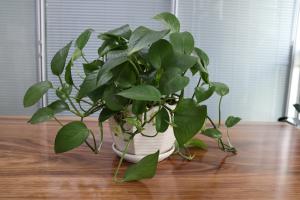Is Spraying Plants with Water Good?
When it comes to taking care of plants, there are several methods people use to ensure their growth and health. One of these methods is spraying the plants with water. But is this good for the plants? Let's take a look at the benefits and drawbacks of this practice.
Benefits of Spraying Plants with Water
Spraying plants with water can provide several benefits for their growth and development. Firstly, it helps to hydrate the plants and keep them from drying out, especially during hot summer months. Secondly, it aids in keeping the plants clean and free of dust, dirt, and insects that may harm them. Thirdly, spraying plants with water can help simulate rainfall and create a more natural environment for them to thrive in. Lastly, some plant species, like ferns and orchids, need high humidity levels to survive, and spraying them with water can help increase the moisture in the air around them.
Drawbacks of Spraying Plants with Water
While spraying plants with water can provide several benefits, there are also some drawbacks to consider. One of these is the risk of overwatering the plants. Too much water can drown the roots and cause the plant to die. Another risk is the spread of diseases and fungus in the plant, especially if the leaves are not dried after being sprayed. Lastly, spraying plants with water can also cause damage to some plant species, like cacti and succulents, that prefer dry environments and may rot if exposed to too much water.
Tips for Spraying Plants with Water
If you decide to spray your plants with water, it is essential to do so correctly to avoid any problems. Here are some tips to consider:
Make sure to water the plants through the soil regularly to avoid overwatering.
Use a spray bottle and mist the leaves lightly to avoid damaging them.
Avoid spraying plants that are sensitive to moisture or have fuzzy leaves, as this can cause damage.
Only spray the plants during the early morning hours or in the evening to avoid evaporation during the hot part of the day.
Dry the leaves after spraying them to avoid the spread of fungus and diseases.
In conclusion
Spraying plants with water can be a beneficial method to keep your plants healthy and lively. However, it is essential to consider the type of plant species and their specific needs before implementing this method. Follow our tips above to ensure your plants remain healthy and happy.

 how many times do yo...
how many times do yo... how many planted tre...
how many planted tre... how many pine trees ...
how many pine trees ... how many pecan trees...
how many pecan trees... how many plants comp...
how many plants comp... how many plants can ...
how many plants can ... how many plants and ...
how many plants and ... how many pepper plan...
how many pepper plan...































